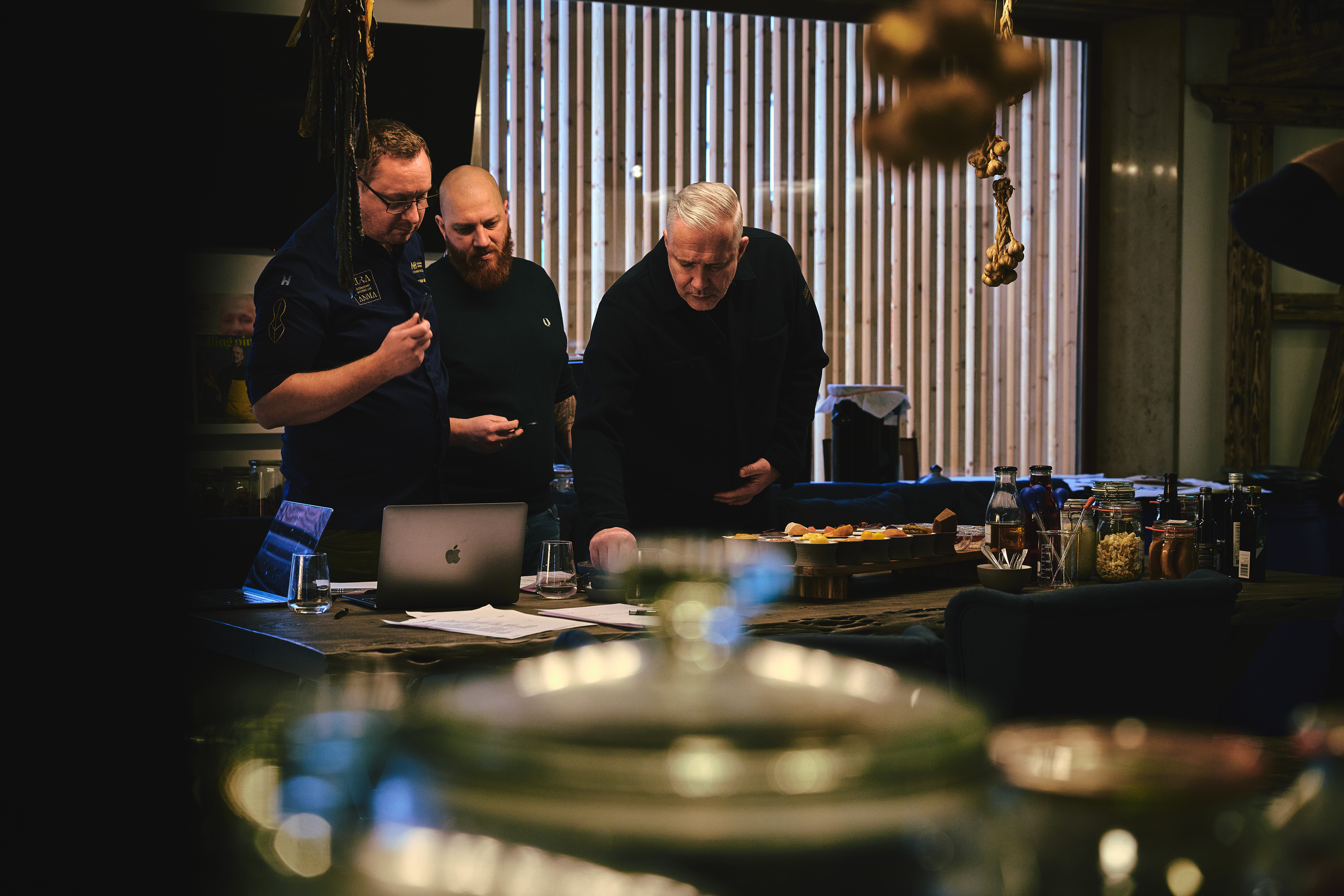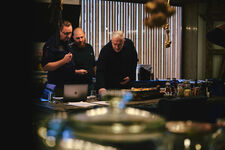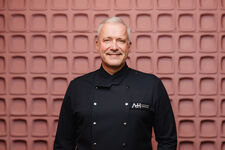Alexander Herrmann on the future of the gastronomy sector, personnel and perspectives
“Don’t moan, rethink” – Alexander Herrmann on the future of the gastronomy sector
Award-winning chef Alexander Herrmann makes no secret of the fact that the gastronomy sector is facing major challenges. He is particularly concerned by the shortage of skilled labour, calling it “our biggest challenge.” For years now, employees, especially those from the service sector, have turned their backs on the industry. And yet Herrmann sees a realistic chance that many will return – confidently explaining that “anyone ever involved in gastronomy has developed a taste for it.”
There needs to be a clear focus on addressing the shortage of skilled personnel, says Herrmann. Á la carte offers need to be carefully planned, which is why he offers set menus. This reduces costs and improves quality: “It makes it easier to achieve perfection.” And distinctions, such as the Michelin Star, are also better within reach. As proven by Herrmann himself, having recently celebrated the second Michelin star for his restaurant Aura. One star is a regional distinction on a national playing field, he explains, while two stars represents an unmistakable style. And yet he emphasises: “Star or no star – superb cooking is superb cooking.”
When it comes to restaurant critics, Herrmann considers those on the Michelin jury to be objective and engaging. There are plenty of other critics on the scene who are more interested in making a name for themselves, he regrettably adds.
Industry image needs to change
Another key point for Herrmann is the management and corporate culture in the hotel and restaurant business. He considers the image of the hot-tempered kitchen chef to be outdated, even if it was once reality: “Back in the day, the loud ones were the good ones. That was a collective failure – both from those doing the shouting and those who went along with it all.” Today, he continues, respect in the workplace is essential for retaining good staff in order to attract new talent to the industry.
The image of the hotel and restaurant sector needs to be urgently revised. “If there is only ever talk of poor working conditions, which have since certainly improved, it doesn’t surprise me that people no longer want to work here.” This is a meaningful, fulfilling and creative industry – once the conditions are right – and that’s what we are responsible for.
Sustainability – pragmatic and creative
Despite all the challenges, Herrmann remains focused on what he considers important: Sustainability for him is not just some buzzword, but common practice – even when not everything is possible. “I could install solar panels on the roof of our restaurant or switch to woodchip heating, but we are in a historical building and it’s simply just not possible.”
Instead, he focuses on using regional products, utilising all parts of the food, as well as introducing innovative alternatives: “Instead of lemon, we use pickled spruce tips. We make our own soya sauce with soya beans from the region.” Turmeric and ginger now also come from Bamberg. Around 93 percent of his produce is sourced from the surrounding area – to the benefit of the environment and the standard of quality. Less fish and meat, menus combined – very much in keeping with his approach of efficiency, freshness and sustainability. An approach recently recognised by the Guide Michelin with a Green Michelin Star – the award for extraordinary dedication to more sustainability in the gastronomy sector.
New generation, new values
Today’s generation, says Alexander Herrmann, is asking different questions – and this presents a major opportunity. People are looking for meaning, for appreciation, for real challenges. “If we treat our colleagues well and create a sustainable work environment, we’ll succeed in keeping these people on board.” Gastronomy can be a place that makes people happy, where artistry and craftsmanship flourish, and which also gives something back to the region and society.
Communication is key here. “The concept needs to be correctly communicated.” We’re talking about dignity, respect and the higher value of the profession. As Herrmann views it, the focus should be less on the economic constraints of this profession, and instead its social value.
Between idealism and reality
Herrmann is, of course, also fully aware of the legal complexities. Employment legislation can be difficult to reconcile with the reality of life in the kitchen: “The law states that employees are only allowed to work 8 hours. Not easy for us to implement in a full-time position.” At events such as weddings, there have to be two shifts – a legal and organisational balancing act. And yet Herrmann remains optimistic – largely because he has learned to be flexible and focus on forging ahead.
The trade fair as a place of inspiration
Finally, Herrmann shares his take on trade fairs: “Away from the humdrum of everyday, they provide a chance to explore new perspectives, to keep an open mind and meet people.” Personal exchanges, the opportunity to touch and feel new products are key elements for him because, as he puts it, culture needs to be experienced in person. And no online platform can replace this. “I’m energised and ready for new challenges after a trade fair,” he says. For him, trade fairs provide unique opportunities to share information and make connections.
___________________________________________
Conclusion
Alexander Herrmann typifies the connection between culinary excellence, entrepreneurial thinking and social responsibility like no other. His views on the gastronomy sector not only focus on enjoyment, but on meaning, transformation and the future. He has demonstrated how an industry can reinvent itself – with courage, principle and humanity.
Photo credits: Photo 1: Jesper Hilbig / Photo 2-4: Nils Hasenau
zurück zur Übersicht



